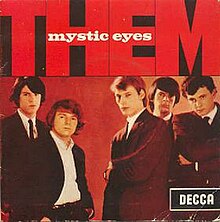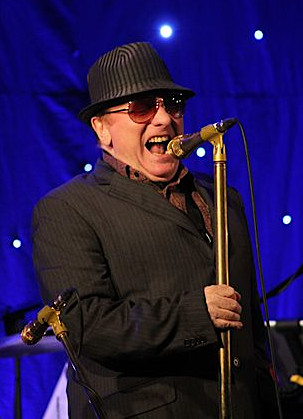
Sir George Ivan MorrisonOBE is a singer-songwriter and musician from Northern Ireland whose recording career spans seven decades.
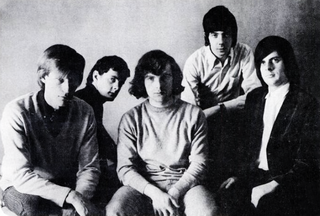
Them were a Northern Irish rock band formed in Belfast, Northern Ireland, in April 1964, most prominently known for their 1964 garage rock standard "Gloria" and launching Van Morrison's musical career. The original five-member band consisted of Morrison, Alan Henderson, Ronnie Milling, Billy Harrison, and Eric Wrixon.
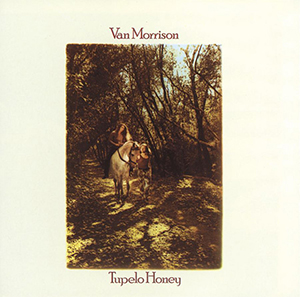
Tupelo Honey is the fifth studio album by Northern Irish singer-songwriter Van Morrison. It was released in October 1971 by Warner Bros. Records. Morrison had written all of the songs in Woodstock, New York, before his move to Marin County, California, except for "You're My Woman", which he wrote during the recording sessions. Recording began at the beginning of the second quarter of 1971 at Wally Heider Studios in San Francisco. Morrison moved to the Columbia Studios in May 1971 to complete the album.
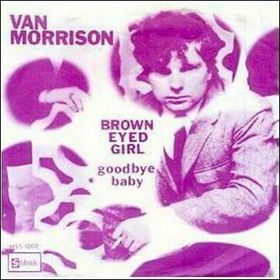
"Brown Eyed Girl" is a song by Northern Irish singer and songwriter Van Morrison. Written by Morrison and recorded in March 1967 for Bang Records owner and producer Bert Berns, it was released as a single in June of the same year on the Bang label, peaking at No. 10 on the Billboard Hot 100. The song spent a total of sixteen weeks on the chart. It featured the Sweet Inspirations singing back-up vocals and is considered to be Van Morrison's signature song.

His Band and the Street Choir is the fourth studio album by Northern Irish singer-songwriter Van Morrison. It was released in November 1970 by Warner Bros. Records. Originally titled Virgo's Fool, Street Choir was renamed by Warner Bros. without Morrison's consent. Recording began in early 1970 with a demo session in a small church in Woodstock, New York. Morrison booked the A&R Studios on 46th Street in New York City in the second quarter of 1970 to produce two sessions of songs that were released on His Band and the Street Choir.

Inarticulate Speech of the Heart is the fourteenth studio album by Northern Irish singer-songwriter Van Morrison, released in 1983. Morrison said he arrived at the title from a Shavian saying: "that idea of communicating with as little articulation as possible, at the same time being emotionally articulate". As his last album for Warner Bros. Records, he decided to do an album which had more than the usual complement of instrumental tracks. As he explained in 1984, "Sometimes when I'm playing something, I'm just sort of humming along with it, and that's got a different vibration than an actual song. So the instrumentals just come from trying to get that form of expression, which is not the same as writing a song." Although not expanded upon, of note is that a special thanks is given to L. Ron Hubbard in the liner notes. The reissued and remastered version of the album contains alternative takes of "Cry for Home" and "Inarticulate Speech of the Heart No. 2".
The Caledonia Soul Orchestra was the band created by Northern Irish singer-songwriter Van Morrison in 1973. The band was named after an eighteen-minute instrumental outtake on the His Band and the Street Choir album.

"Here Comes the Night" is a 1964 song, written by Bert Berns. It became a hit for Northern Irish band Them, fronted by Van Morrison, in March 1965, charting at No. 2 in the UK and No. 24 in the US. Them's single is listed at either No. 33 or No. 36 in the Top 100 best-selling UK singles during the calendar year 1965, depending on source.
"Into the Mystic" is a song written by Northern Irish singer-songwriter Van Morrison and featured on his 1970 album Moondance. It was also included on Morrison's 1974 live album, It's Too Late to Stop Now.

Them Again is the second album by the Northern Irish band Them, fronted by lead singer and songwriter Van Morrison. The album was released by Decca Records in the UK on 21 January 1966, but it failed to chart. In the U.S., the album was released with somewhat different tracks in April 1966 and it peaked at number 138 on the Billboard chart.
"It's All Over Now, Baby Blue" is a song written and performed by Bob Dylan and featured on his Bringing It All Back Home album, released on March 22, 1965, by Columbia Records. The song was recorded on January 15, 1965, with Dylan's acoustic guitar and harmonica and William E. Lee's bass guitar the only instrumentation. The lyrics were heavily influenced by Symbolist poetry and bid farewell to the titular "Baby Blue". There has been much speculation about the real life identity of "Baby Blue", with possibilities including Joan Baez, David Blue, Paul Clayton, Dylan's folk music audience, and even Dylan himself.

Mudcrutch was an American musical group from Gainesville, Florida, whose sound touched on southern rock and country rock. They were first active in the 1970s and reformed in 2007, and are best known for being the band which launched Tom Petty to fame.

"Bright Side of the Road" is a song written by Northern Irish singer-songwriter Van Morrison and included on his 1979 album Into the Music. It was also one of the outtakes that made up the 1998 compilation album, The Philosopher's Stone. As a single "Bright Side of the Road" was released in September 1979 and charted at No. 48 in the Netherlands, No. 63 in the UK and just outside the Billboard Hot 100 in the US at No. 110. In 2020, the song reached its highest radio airplay chart position in Ireland, peaking at #2.
"Saint Dominic's Preview" is the title song of the sixth album by Northern Irish singer-songwriter Van Morrison, released in July 1972 by Warner Bros. It was recorded at the Wally Heider Studios in San Francisco in April 1972, with overdubs made later on. Morrison wrote it in a stream of consciousness in the same vein as some of his earlier works, particularly those on Astral Weeks. The song's narrative moves from France to San Francisco, Morrison's place of residence at the time, to Belfast, where he grew up, to New York City.

Live at Montreux 1980/1974 is the first official DVD by Northern Irish singer-songwriter Van Morrison. It was released on 16 October 2006. The films consist of two separate performances by Van Morrison at the Montreux Jazz Festival in Switzerland. It was certified gold in May 2007 and platinum in June 2009.
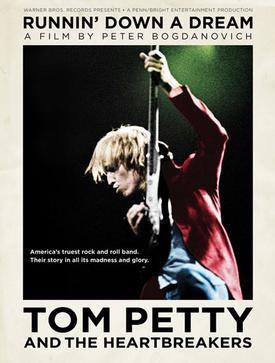
Runnin' Down a Dream is a 2007 documentary film about Tom Petty and the Heartbreakers, directed by Peter Bogdanovich. The 4-hour documentary chronicles the history of the band, from its inception as Mudcrutch, right up to the 30th-anniversary concert in Petty's home town of Gainesville, Florida, on September 21, 2006, at the Stephen C. O'Connell Center, University of Florida. The film features interviews with George Harrison, Eddie Vedder, Stevie Nicks, Dave Grohl, Jeff Lynne, Rick Rubin, Johnny Depp, Jackson Browne and more. Petty's solo career is also touched on, as is his time with The Traveling Wilburys.

"Rough God Goes Riding" is the opening song on the album, The Healing Game by Northern Irish singer-songwriter Van Morrison. The song reached No. 168 on the UK charts. One of the B-sides of the single, the alternative version of "The Healing Game", appears on all three editions of Morrison's 2007 compilation album Still on Top - The Greatest Hits. The other B-side "At the End of the Day" was released as a bonus track on the 2008 reissue of The Healing Game.

"Come Running" is a song written by singer-songwriter Van Morrison and included on his 1970 album Moondance.
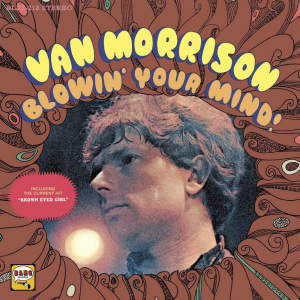
Blowin' Your Mind! is the debut studio album by Northern Irish musician Van Morrison, released in 1967. It was recorded 28–29 March 1967 and contained his first solo pop hit "Brown Eyed Girl". It was included by Rolling Stone as one of the 40 Essential Albums of 1967.
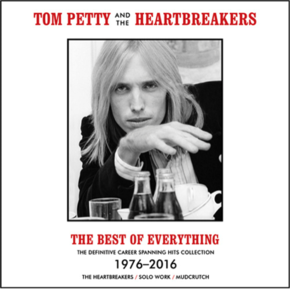
The Best of Everything is a 2019 greatest hits album with recordings made by Tom Petty, with his backing band The Heartbreakers, as a solo artist, and with Mudcrutch. It was released on March 1.
